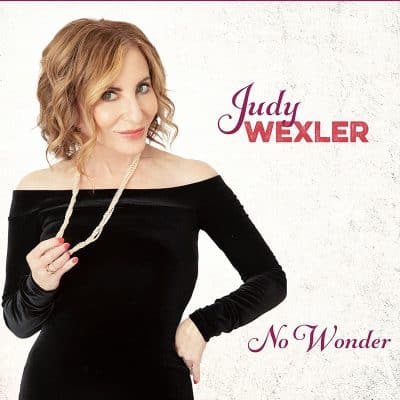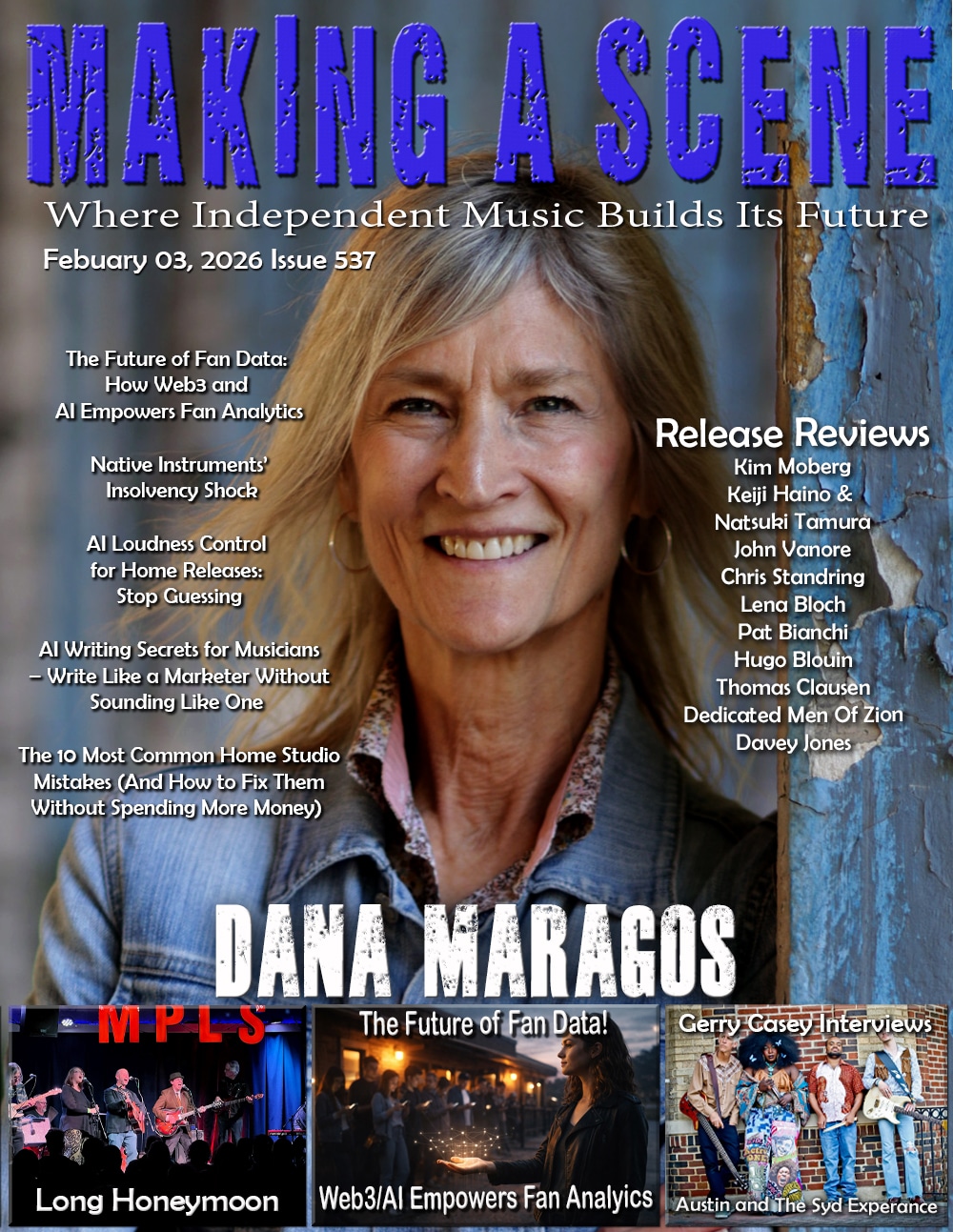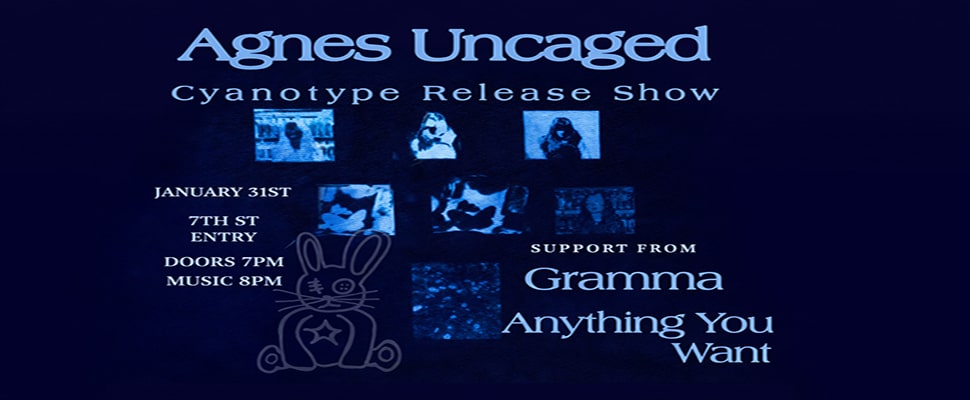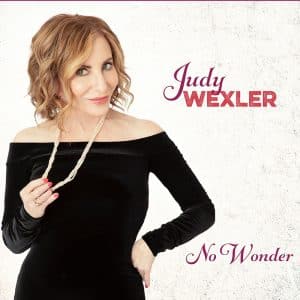Judy Wexler No Wonder
 Judy Wexler
Judy Wexler
No Wonder
Jewel City Jazz/A-Train Entertainment
L.A. vocalist Judy Wexler is releasing her seventh album, “No Wonder,” where for the first time she looks to the Great American Songbook, albeit in Wexler style, not the usual beaten path. She works again with longtime pianist and arranger Jeff Collela and found inspiration for this album in Collella’s two-horn rendering of “Delilah” (with new lyrics, renames “Dreams & Shadows,” the title track of her 2008 album. In selecting these songs, Wexler set a high bar and sought out the “hipper’ standards. By the way, Collela earned his major cred as the musical director for Lou Rawls. He’s recorded and toured with Wexler on countless shows, so as co-producer he knows how to best position her warm vocals and arrange in a way that accentuates her emotional bent. And, as you’ve likely already guessed, horns are present, three rather than just two with multi-reedists Bob Sheppard and Danny Janklow; and trumpeter Jay Jennings. Alongside are guitarist Larry Koonse, bassist Gabe Davis, and drummer Steve Hass. Sheppard and Koonse as well as Colella are frequent collaborators.
Wexler is a storyteller, a musicologist, and a song interpreter with an especially warm voice and phrasing that centers on the lyrics. She’s not interested in showboating but instead a more straightforward approach that gets to the heart of the song as opposed to scatting and vocalese. She’s a nuanced singer, navigating melodic variations and rhythmic shifts effortlessly with an inherent swinging quality too. You won’t find another singer with her repertoire which incorporates as many pop, folk, and rock songs as it does jazz. Seek out her 2021 “Back to the Garden,” covered on these pages for further evidence. This time, she delves more into jazz songs but includes one from Leonard Cohen and another from singer-songwriter Luciana Souza.
Souza’s title track kicks off, and it’s the second Souza song Wexler has covered; “Circus Life” having appeared on 2019’s “Crowded Heart” (also covered herein). The song bounces along briskly with strong takes from Janklow on tenor and tricky rhythms deftly handled by the rhythm section and a clever, emphatic ending. The tempo shifts down for Michel Legrand’s “Summer Knows” with superb accompaniment from Colella that frames Wexler’s vocal full of romantic yearning. Janklow steps in with fluid alto solo to further extend the emotional quotient. While the Brown/Kahn “You Stepped Out of a Dream” may be one of the more widely recognized tunes, Wexler and the band render it in a West Coast cool, ‘50s style with Jennings and Collela prominent instrumentally. The full ensemble revels in Frank Loesser’s challenging “Never Will I Marry,” first recorded by Cannonball Adderley and Nancy Wilson. Harold Rome’s “Wish You Were Here” is more obscure with a longing quality, another ambitious tune and a feature for guitarist Koonse.
The ensemble launches into Cedar Walton’s hard bop “Firm Roots” for which Kitty Margolis wrote the lyrics, hence the parenthetical (Are What You Need to Win). Wexler is masterful in this shifting tempo as are drummer Hass and trumpeter Jennings. Again they follow with a dramatic tempo downshift for Henry Mancini’s “Slow Hot Wind,” another that was originally an instrumental until Norman Gimbel added the suggestive lyrics, ideal for Wexler’s ardent treatment bolstered by Sheppard’s slithery soprano sax solo. “I Wish You Love” traces to Blossom Dearie in an arrangement from trumpeter, composer, and arranger Brian Shwartz. There’s a joyful soli between Wexler and Janklow on tenor midway, the highlight of this piece, a swinger for the full ensemble.
The other outlier, aside from the title track, is Cohen’s “Dance Me to the End of Love,” about the Jewish musicians in the Nazi concentration camps who were forced to perform as their fellow prisoners were marched to their deaths. Collela appropriately arranged the song in Klezmer style, punctuated by Sheppard’s clarinet and stirring guitar from Koonse.
More familiar material appears in the last three songs. “That Sunday, That Summer” and “A Weaver of Dreams” were first rendered by Nat King Cole, both arrangements featuring Janklow’s flute and a lot flute respectively along with poignant flugelhorn from Jennings. The closer may be the most well known of all as “The NIght We Called It a Day” associates to both Frank Sinatra and Bob Dylan. Here, Wexler retreats the spare accompaniment of just the piano trio in yet another yearning vocal, clearly her preference through this program.
True to Wexler’s discography, this is an impeccably well-researched and well executed project down to the minute details. Yes, as the saying goes, the beauty is in the details.
– Jim Hynes
BUY NOW
Buy Us a Cup of Coffee!
Join the movement in supporting Making a Scene, the premier independent resource for both emerging musicians and the dedicated fans who champion them.
We showcase this vibrant community that celebrates the raw talent and creative spirit driving the music industry forward. From insightful articles and in-depth interviews to exclusive content and insider tips, Making a Scene empowers artists to thrive and fans to discover their next favorite sound.
Together, let’s amplify the voices of independent musicians and forge unforgettable connections through the power of music
Make a one-time donation
Make a monthly donation
Make a yearly donation
Buy us a cup of Coffee!
Or enter a custom amount
Your contribution is appreciated.
Your contribution is appreciated.
Your contribution is appreciated.
DonateDonate monthlyDonate yearlyYou can donate directly through Paypal!
Subscribe to Our Newsletter
Order the New Book From Making a Scene
Breaking Chains – Navigating the Decentralized Music Industry
Breaking Chains is a groundbreaking guide for independent musicians ready to take control of their careers in the rapidly evolving world of decentralized music. From blockchain-powered royalties to NFTs, DAOs, and smart contracts, this book breaks down complex Web3 concepts into practical strategies that help artists earn more, connect directly with fans, and retain creative freedom. With real-world examples, platform recommendations, and step-by-step guidance, it empowers musicians to bypass traditional gatekeepers and build sustainable careers on their own terms.
More than just a tech manual, Breaking Chains explores the bigger picture—how decentralization can rebuild the music industry’s middle class, strengthen local economies, and transform fans into stakeholders in an artist’s journey. Whether you’re an emerging musician, a veteran indie artist, or a curious fan of the next music revolution, this book is your roadmap to the future of fair, transparent, and community-driven music.
Get your Limited Edition Signed and Numbered (Only 50 copies Available) Free Shipping Included
Discover more from Making A Scene!
Subscribe to get the latest posts sent to your email.









